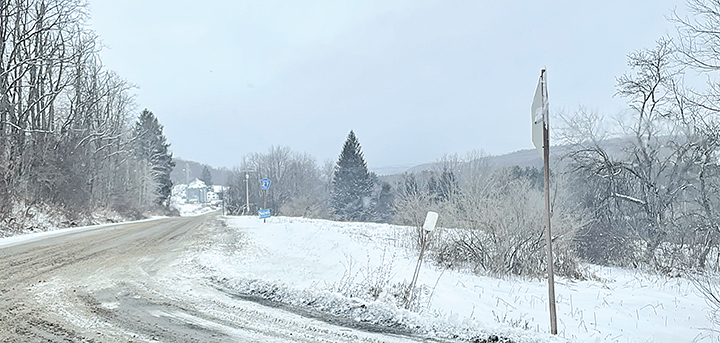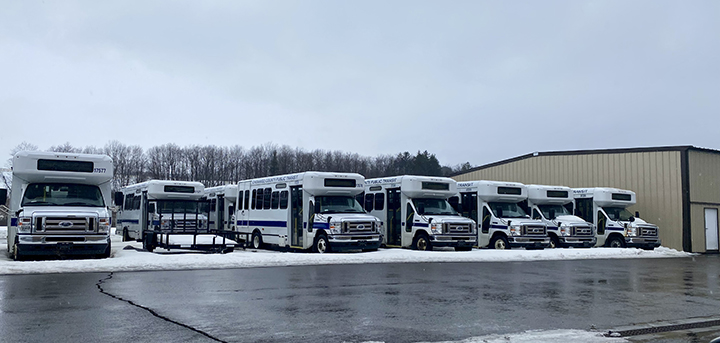Illegal DPW strike during winter storm left residents in crisis, Chenango County report reveals
According to a new report released by the Chenango County Board of Supervisors, nearly a dozen DPW employees participated in an illegal strike that coincided with a powerful storm on November 21 and 22 that brought heavy, wet snow, knocking out power to more than 5,700 homes and businesses. Major roads in Coventry, Plymouth, Greene, and Norwich were left unplowed. (Photo by Cindy Tiley)
CHENANGO COUNTY – According to a county investigation a coordinated work stoppage by Chenango County Department of Public Works employees during a November 2024 snowstorm compounded the weather’s effects, leaving residents stranded and roads impassable.
According to a new report released by the Chenango County Board of Supervisors, nearly a dozen DPW employees participated in the strike, which investigators classified as illegal under New York’s Taylor Law.
Penalties for participants include suspensions ranging from 7 to 20 days and payroll deductions, while others face further consequences, including possible termination. Employees have the option to appeal the determinations.
The county launched an internal investigation in the wake of a November 21-23 storm, which brought 8 to12 inches of snow, causing widespread power outages and road hazards.
Officials reported emergency calls to DPW employees to manage snow removal were met with limited responses, including from the Chenango County Sheriff’s Office’s 911 Dispatch Center, who was seeking aid on behalf of first responders before midnight on Thursday, November 21.
Despite having a call list and procedures in place for such events, it took an hour for an emergency plow truck to be dispatched.
Overnight, despite calls to all available drivers, the report said only four able drivers and one ride-along trainee, out of a pool of 21 possible operators, showed up until about 7 a.m.











Comments